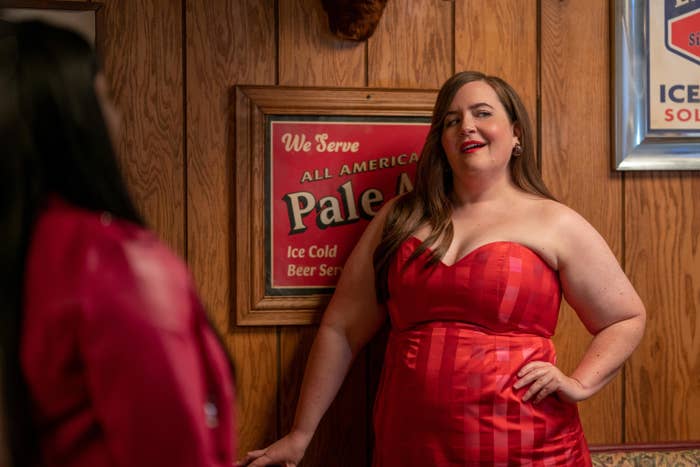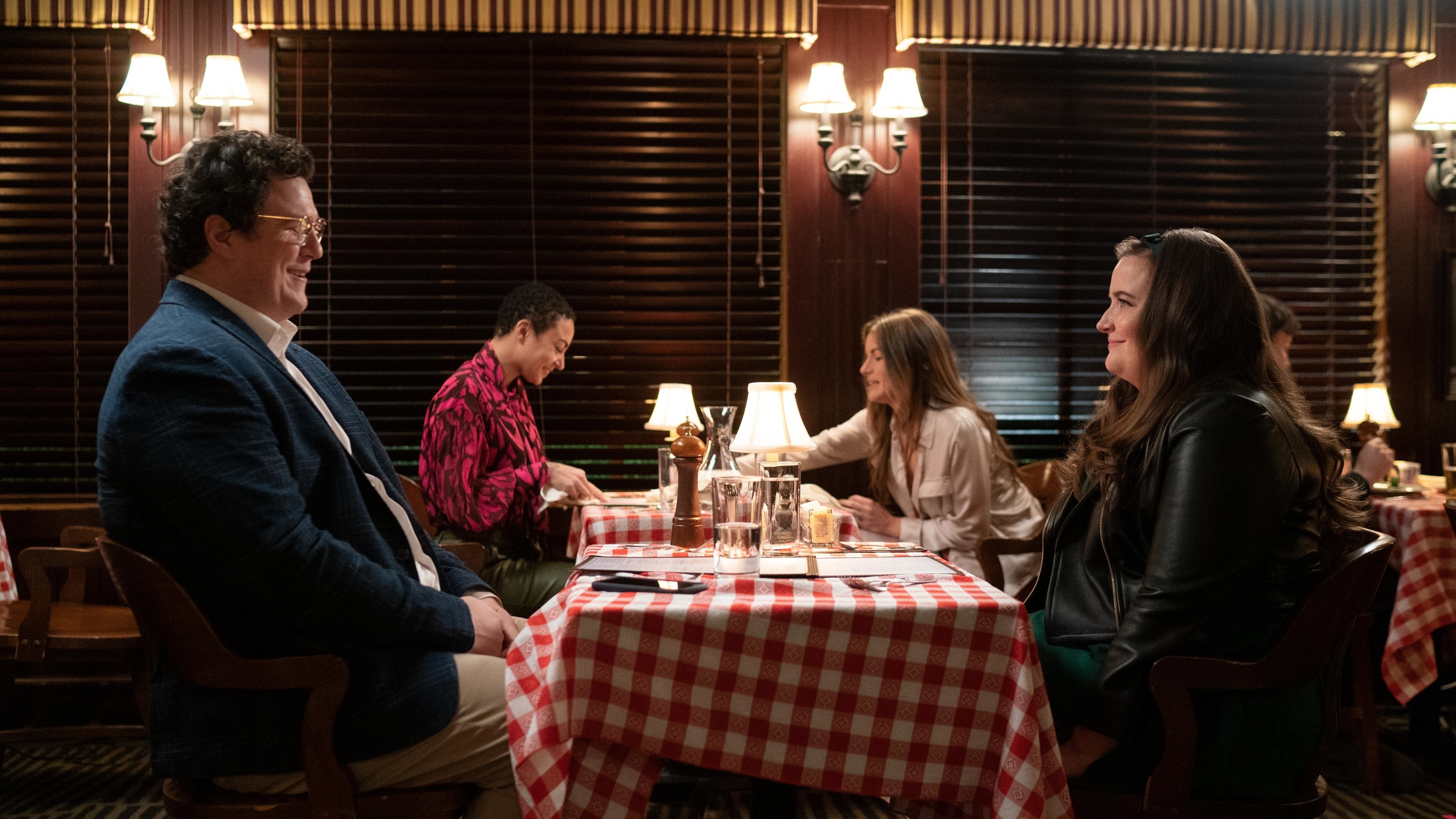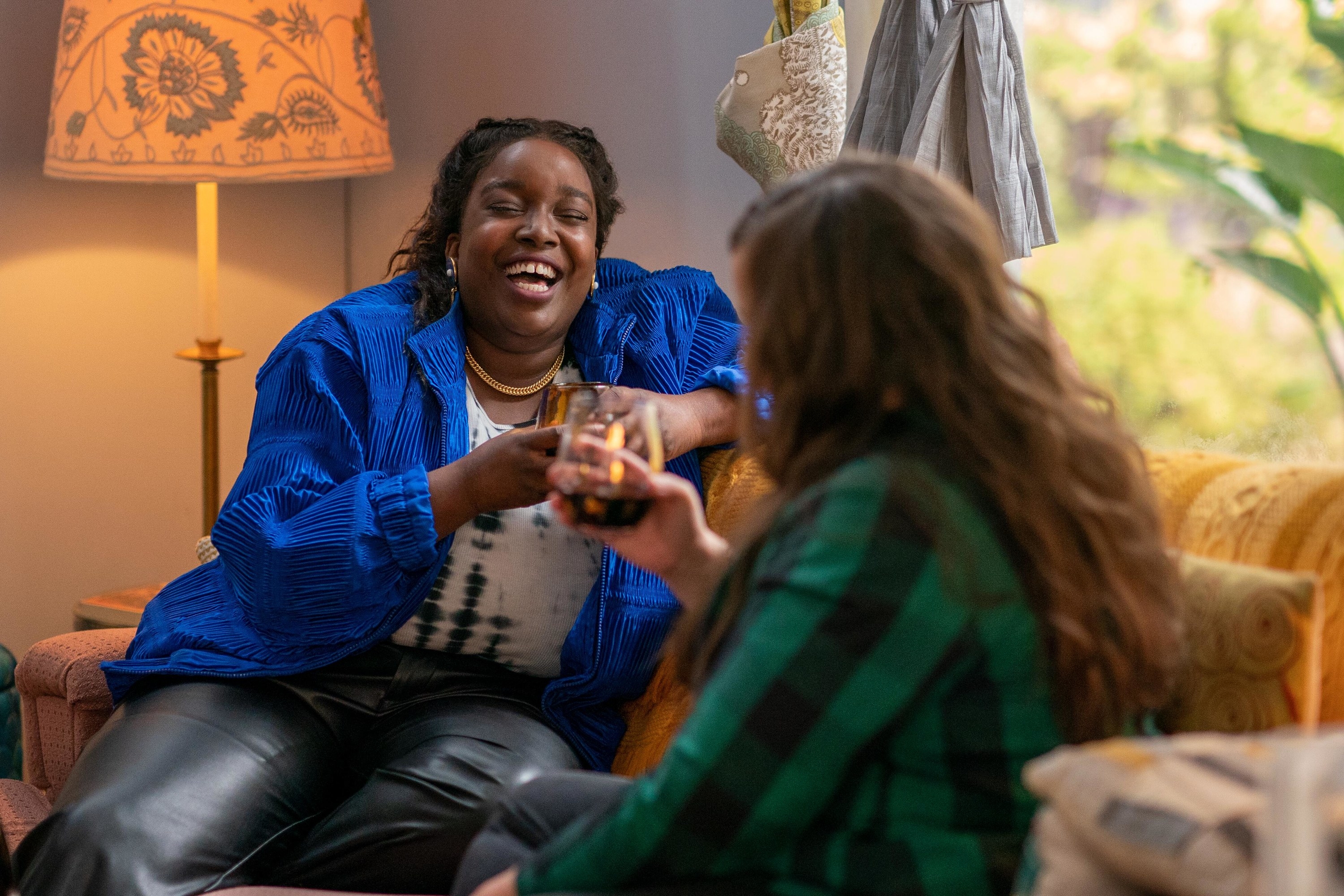
I have dental anxiety, which is exactly what it sounds like. When I’m lying in that chair with someone poking at my teeth, I want to cry. It’s not an uncommon experience, but it is extremely embarrassing.
My last cleaning was the worst yet. I told the hygienist up front that I get nervous at the dentist. “No problem,” she said. Then, a few minutes in, she told me she had noticed stubble on my cheek and asked if I had polycystic ovarian syndrome. This was mortifying (just clean my teeth, please!), but I told her that I did. She launched into a sales pitch for weight-loss surgery. She’d had it done — didn’t she look great! — and my PCOS meant my province’s universal healthcare could pay for it.
“I’m sure you must be uncomfortable,” she told me.
She meant uncomfortable in my body. But I sure as shit was uncomfortable in that moment because the person making my gums bleed was telling me to get invasive surgery to correct my failure of a body.
It was humiliating, entirely inappropriate, and unprofessional, but the sort of interaction you come to expect when you live in a fat body.
In the first episode of Shrill’s third season, which comes out on Hulu on Friday, protagonist Annie Easton (played by Aidy Bryant, who also writes for and produces the show) hears a similar line. She’s at the gynecologist for a pap smear, and when the doctor is done, she tells Annie, “You should think about gastric bypass — you’re at a good age for it.”
“That might be the most realistic solution,” she continues while Annie is still pants-less on the exam table, then hands her a pamphlet titled “Smaller Body, Bigger Life.”
Like me, Annie politely declined the advice and didn’t cause a fuss. I squirmed as I watched.
After, as she sees the doctor leaving the building, Annie yells. Shouts. “Hey, that was fucking fucked up! You’re going to look at me for 10 minutes and tell me to cut my stomach out? How is that medically ethical?”
There are a few other choice words, but the doctor hears none of it because she has headphones in. Still, it’s one of so many moments in Shrill that signal just how much the show’s creators get it. They are intimately familiar with the often subtle ways fat-shaming permeates our lives, and the anger fat people carry because of it.
In an interview last month, Bryant told me she once visited a doctor for a physical, and he gave her the same pitch.
“He right away was like, ‘You should get gastric bypass. You're really young. People are doing it all the time now,’” she said.
“I just remember feeling like, What? Like, you haven't even taken any blood, any vitals, anything. And you're tossing this off as if it's something I'm begging for. I was totally devastated.”
This will, sadly, be the final season of Shrill. The show is by no means perfect — I’ve previously criticized the romantic plots — but what it got right, it got so perfectly right. Annie is bold and lovable, but also at times exasperatingly selfish and frustrating. That’s what makes her so unique: The show has found the balance between a fat character owning their fatness and also being entirely human. She isn’t someone to pity, or someone designed to make you feel better about your own body. She isn’t the butt of the joke. From the outset, Shrill set a new precedent for fat characters in pop culture, and its third season continues on that path.
The list of fat people onscreen is both short and disappointing. I won’t rehash the criticisms at length here — many other writers have already gone deep on them — but one running theme is that a fat woman is either obsessed with her body and considers it a grave problem to be fixed, or she’s just a walking punchline, often with a voracious sexual appetite we’re meant to see as repulsive.
“It's kind of a haunting image, you know. There's something about it that really lacks dignity,” Bryant told me of the stereotypes that exist. In Shrill, she got to let Annie express her sexuality and outright horniness in a way that affirms that fat people both desire and have good sex.
“The idea that she would be a sexual person was never a joke. That was an area where I thought we could do better,” she said.
Annie has never been any of those awful stereotypes. The first season of Shrill very much grapples with self-esteem, like in the much-loved fat pool party episode, where Annie finds comfort and belonging at an event just for plus-size babes. And in the second season, we see Annie’s mother lob passive-aggressive diet advice at her daughter, showing how even those with good intentions perpetuate fat-shaming. The third season moves more firmly into exploring anti-fatness and how it manifests within ourselves. At this point in the story, Annie’s body is never the problem — the problem is how the world treats her, and how she internalizes that pain.
When you’re fat, there’s immense pressure to be perfect in every other way, as if to apologize for your body.
When you’re fat, there’s immense pressure to be perfect in every other way, as if to apologize for your body. For me, I felt that if I couldn’t fix my body then I had to be the best at everything else — the best student, the best girlfriend, the best employee, the best friend. I worried that if I didn’t go out of my way to be kind and accommodating, I would simply be rejected. After all, I’d been reminded my whole life that my body meant I had one major strike against me.
Bryant told me she’s felt that too — like she always had to be the sweetest, the most easy-going, and best behaved to prove she belongs where she is.
“As far as playing Annie, it was a really good experience for me to, especially in this season, try on being the person who says ‘fuck you.’ Because even just trying it as a character makes you a little more comfortable being that person.”
Bryant has always captured Annie’s desire to please with a soft-spoken tone, which has been lambasted by some critics, but I’ve always thought it demonstrated a very real aspect of being fat. Bryant is aware of those criticisms, but Annie’s voice was intentionally designed that way.
“I've always thought of the show as [being about] someone who is working to the place that they would be called shrill,” she told me. “It takes so much time to break those kinds of mental patterns, you know? I think this season is the first time she's trying on using her voice in a more forceful way.”
Getting there can be painful. In a college flashback episode, we meet Annie’s then-roommate and best friend, Lauren (played by Chelsea Frei), a thin party girl who is constantly fat-shaming herself, and Annie by extension, fishing for Annie to say how tiny her body is. This struck a nerve with me — I had a friend in university who would insult people by calling them “obese” when I was right there. It hurts to watch Annie take it, pretending this doesn’t bother her, especially when it’s clear that the problem is the friend, not Annie.
It’s not just these external slights against Annie that sting. It becomes obvious that she has internalized the fat-shaming all around her when she unthinkingly applies similar standards to others. In the particularly agonizing second episode, Annie is set up on a date with a recently divorced fat man, and she doesn’t take it well, assuming she’s been matched with a loser because they both happen to be fat. It’s excruciating to watch her reject a man who seems very sweet, and to see him so hurt and wondering what he did wrong. But that’s the other important thing about Annie. She’s not perfect — far from it.

Such flaws are what makes Annie a fully realized character rather than a lazy, fat stereotype. One of her worst offenses is excusing her shortcomings with insecurity, like when she tries to stealthily spy on a romantic interest’s ex and blames the invasion on her own history of bad relationships. She also has a tendency to treat the people who love her most as crutches, happily taking support from them but not necessarily reciprocating. The prime example is her best friend Fran, played by Lolly Adefope, a complex and very delightful woman who deserves so much more than Annie seems willing to give. Annie is always unloading her problems on Fran and yet, this season, is totally oblivious to Fran’s own relationship issues.
This comes to a head when Annie takes an assignment to profile a group of conservative, separatist ranchers steeped in white supremacy. She thinks she’s calling these people out on their “bullshit,” but her piece ends up being overly flattering to a plainly detestable group; it runs with the headline “Separate…But Charming?”
After receiving backlash from readers, Annie works through her white privilege — something I wish had happened sooner in the show, given that we know fat-shaming often affects people of color, particularly Black women, more pervasively. Fran and Annie’s editor, Amadi (Ian Owens), who are both Black, let her stew in that guilt, rightfully not taking responsibility for the emotional fallout. When Annie goes to Fran for support, Fran says, “Stop, you’re not the victim here.” Fran tells Annie her intentions with the article didn’t matter — she gave these people a platform. “I can’t help you through this. This is your problem,” Fran says. It’s satisfying to watch Annie have to own up to her mistake. It’s not schadenfreude so much as an opportunity for Annie to do better that you hope she’ll seize.
“We talked about it so long in the writers’ room,” said Lindy West, a writer and producer for the show, and the author of the memoir Shrill, the show’s source material. “In the aftermath, she goes into her same sort of ‘poor me’ victim mode where she wants the Black people in her life to comfort her and make it OK for her … that whole arc is just such an example of the ways that white people are unequipped to talk about race.”

Season 3 is also packed with little moments that hit deep, like some later fat-on-fat romance that is handled with great care, Annie’s pursuit of a sex life that is fulfilling instead of settling for mediocrity, and a deeper exploration of Fran’s relationship with her white, nonbinary partner.
Sometimes I was left wanting more. The introduction of Will (played by Cameron Britton), Annie’s arranged date, would have been a great avenue to explore the experience of being a fat man, but we never go there. And after the article incident, Annie goes on an apology tour, but we never get a satisfying conclusion of the long-term impact on her relationships and career — it just sort of fades away.
You also shouldn’t expect a neat, bow-tie of an ending. I won’t spoil it, but things are left unsettled, although it still feels like we say goodbye to Annie, a woman on a long road toward boldness, at the right place.
Bryant said we’ve seen Annie come so far over these three seasons, so close to being who she wants to be. “I think it's just around the corner. We didn't choose to end the show right now — this was someone else's choice — but I'm happy with where it ends,” she said. (Hulu announced in January that Shrill wouldn’t be coming back for a fourth season.)
“You really get to imagine that all these characters keep on living, and they keep on doing their lives,” said West. “And there's something really comforting about that.”
Annie is not the be-all and end-all of fat women on television. She, like so many before her, is still white, relatively well off, and straight. There’s so much more to explore, but Annie was a direly needed improvement to the half-baked characters and outright mockery we had. It’s hard to overstate how affirming it was to simply see a fat person be bright, ambitious, and occasionally fearless, but also fail in relatable ways. Future shows that involve fat characters should look to Shrill as a jumping-off point for how to create a character who is fully realized, lives a complex life, and has flaws that are tied to being a person — not a fat person.
This show isn’t for everyone. But Shrill let me see a piece of myself onscreen. After years of being only a joke, that means something. Annie, I’ll miss you. ●
